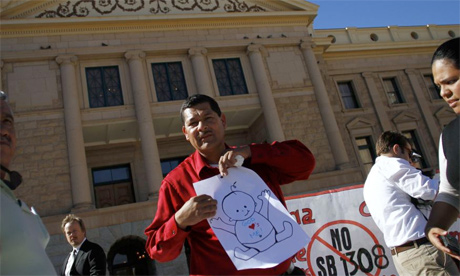PRESS RELEASE – February 25, 2011
Photo credit: Carolyn L. Forbes.
***
A Tribute to Professor Jack D. Forbes
(Powhatan-Renape, Delaware-Lenape)
(1934-2011)
A husband, father, family member, friend, colleague, mentor, and professor Jack D. Forbes (UCD Professor Emeritus), moved on to the Spirit World on Wednesday, February 23, 2011.
Survived by his wife Carolyn, his daughter Nancy O’Hearn, his son Kenneth Forbes, son-in-law Bill O’Hearn and grandson Jack O’Hearn.
Born January 7, 1934, he lived an eventful life and left behind a visible and profound legacy. His impact was extensive. Jack earned his Ph.D. in history from the University of Southern California in 1959. His doctoral dissertation, The Apache, Navaho, and Spaniard (1960), was published in a matter of months after earning his doctorate. Jack went on to write numerous books and journal articles, and his scholarship represented pathfinding work and reflected the particular time in which he wrote. For example, his book, Columbus and Other Cannibals (1992) was one of several books that focused on the Quincentennial (mainstream society's so-called 500 year anniversary of the supposed “discovery of America” or 500 years of survival, post-invasion) event of 1992. His 1966 journal article, “An American Indian University: A Proposal for Survival,” (Journal of American Indian Education) had a significance influence on the Tribal College Movement and was published two years before the creation of the first tribally-run college (the Navajo Community College; renamed Dine College in 1997). Today, Native America now has 35 tribal colleges which enroll approximately 33% of the Native American postsecondary population. Jack's article helped ignite the tribal college movement. In 1970, he co-founded DQ University, an indigenous university/tribal college, located near Davis, California.
In addition to his significant scholarship, Jack stepped forward and took a political position on various Native American issues. He provided an important voice in the 1975 documentary, The Broken Treaty at Battle Mountain (narrated by movie actor Robert Redford) in which he asserted that the tribal people in Nevada had legal entitlement to roughly 85% of the land base in the state. Much of this land base is classified as federal government land and labeled as Bureau of Land Management (BLM) domain. Jack believed so strongly in his political positions that he was willing to go against the so-called authorities who wanted him to keep quiet.
Jack emerged as one of the founding leaders of Native American Studies which began in 1969. Well before this year, he advocated the establishment of Native American subject matter but faced deaf ears and opposition from mainstream higher education. However, due to the political times--Affirmative Action, the takeover of Alcatraz Island, the larger Student Protest Movement of the 60s--Jack and several others were able to establish Native American Studies programs at different universities. Thus, NAS programs came into existence at UC Davis when Jack was hired in 1969. The creation of other NAS programs he influenced at that time included UCLA, UC Berkeley and the University of Minnesota.
Before his retirement from UC Davis in the mid-1990s, Jack worked hard to create a strong Native American Studies program at UCD. Through his effort, along with the support of his NAS colleagues, NAS at UCD became an academic department in October 1993. Jack also began the creation of a graduate program which became reality in 1999 after his retirement. However, before retiring he created a graduate seminar in the 1980s entitled “Native American Ethnohistory” (NAS 280). This seminar still exists today. He also pushed for another seminar, “Basic Concepts in Native American Studies” (NAS 200) which was first taught in the winter quarter 1994, some six years before the graduate program came into existence.
Jack extended his academic career beyond the U.S. borders. In 1980 -1981 he served as a Visiting Fulbright Professor at the University of Warwick, England. He received the Tinbergen Chair at the Erasmus University of Rotterdam in 1984; was a Visiting Scholar at the Institute of Social and Cultural Anthropology and Fellow of Linacre College at Oxford University, England in 1985-6; and a Senior Fulbright Scholar at the University of Essex, England in 1993.
Although Jack retired in the mid-1990s, he never really retired. He always made his presence known, both on and off campus. He continued to take political stands on various issues and remained committed to his beliefs and convictions. He gladly served on the committees of Native American graduate students at UC Davis, UC Berkeley and other universities. His students hold him in high regard for his rich ideas and guidance. As recent as the winter quarter 2009 he taught an NAS graduate seminar on Termination policies and their impact upon Native American populations.
We will miss Jack. We respect him for his courage, humor, intelligence and humanity. He will always remain in our hearts.
Written by Prof. Steven Crum, UCD and Prof. Annette Reed, CSUS
Services will be private with a public memorial to be scheduled at a later date. Flowers and cards may be sent c/o Wiscombe Funeral Home, 116 D Street, Davis CA 95616. Donations to the Jack D. Forbes Memorial Fund in Native American Studies can be sent c/o Native American Studies, UC Davis, One Shields Ave., Davis CA 95616, made payable to the UC Regents. For further information about the fund, please call 530-754-9497.

